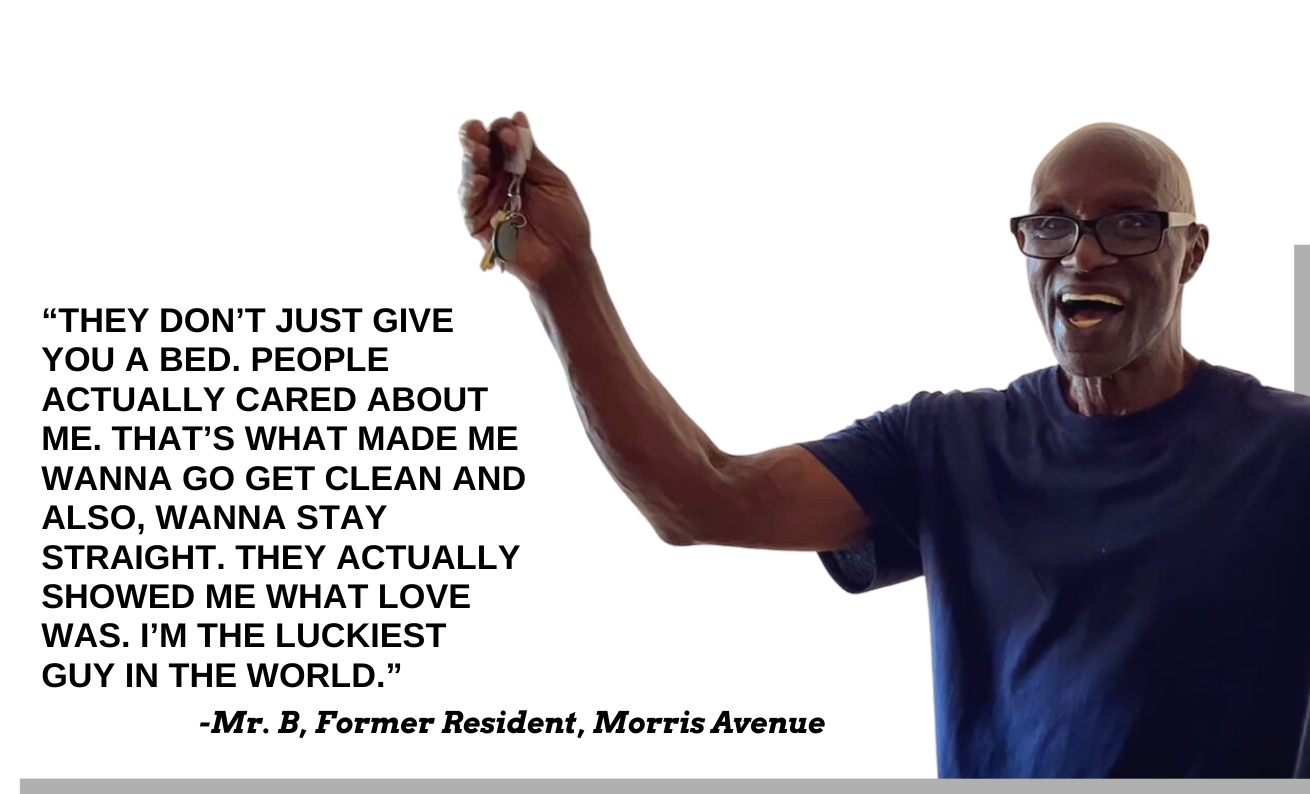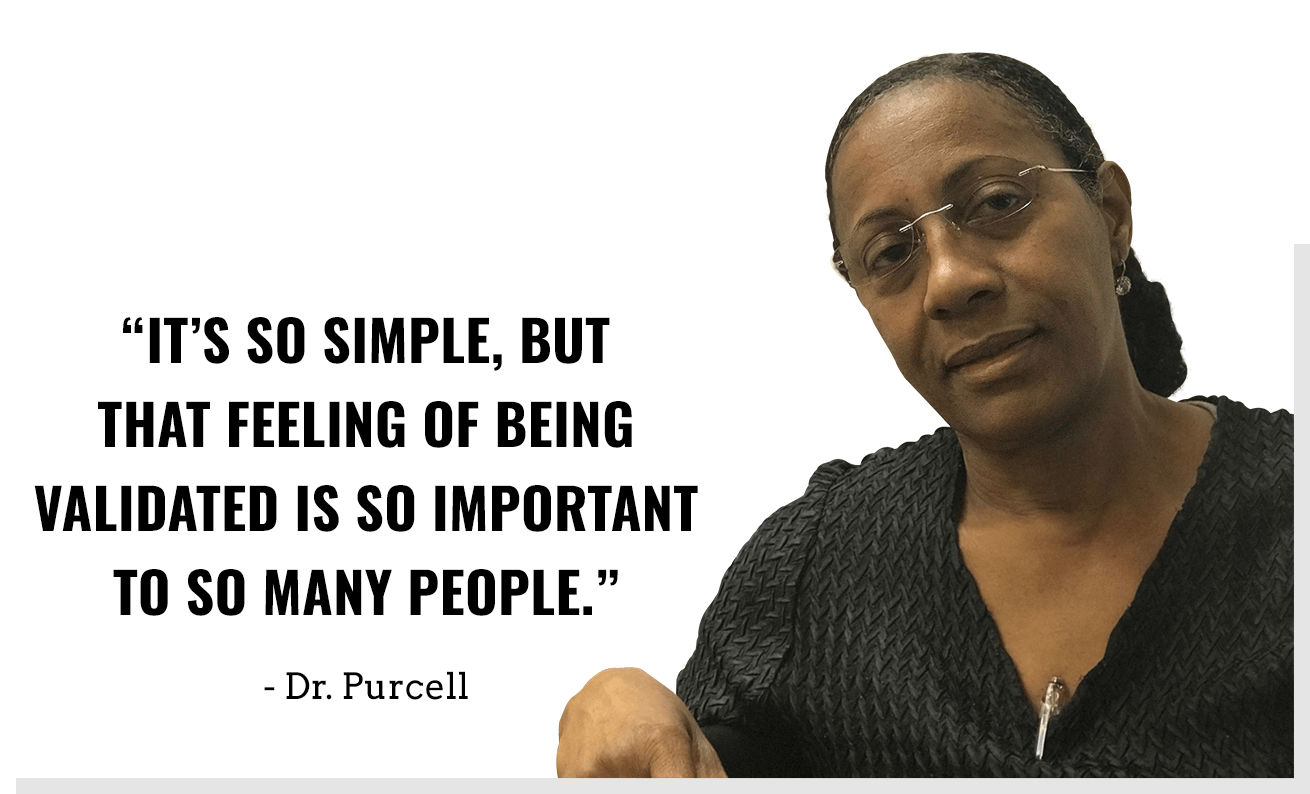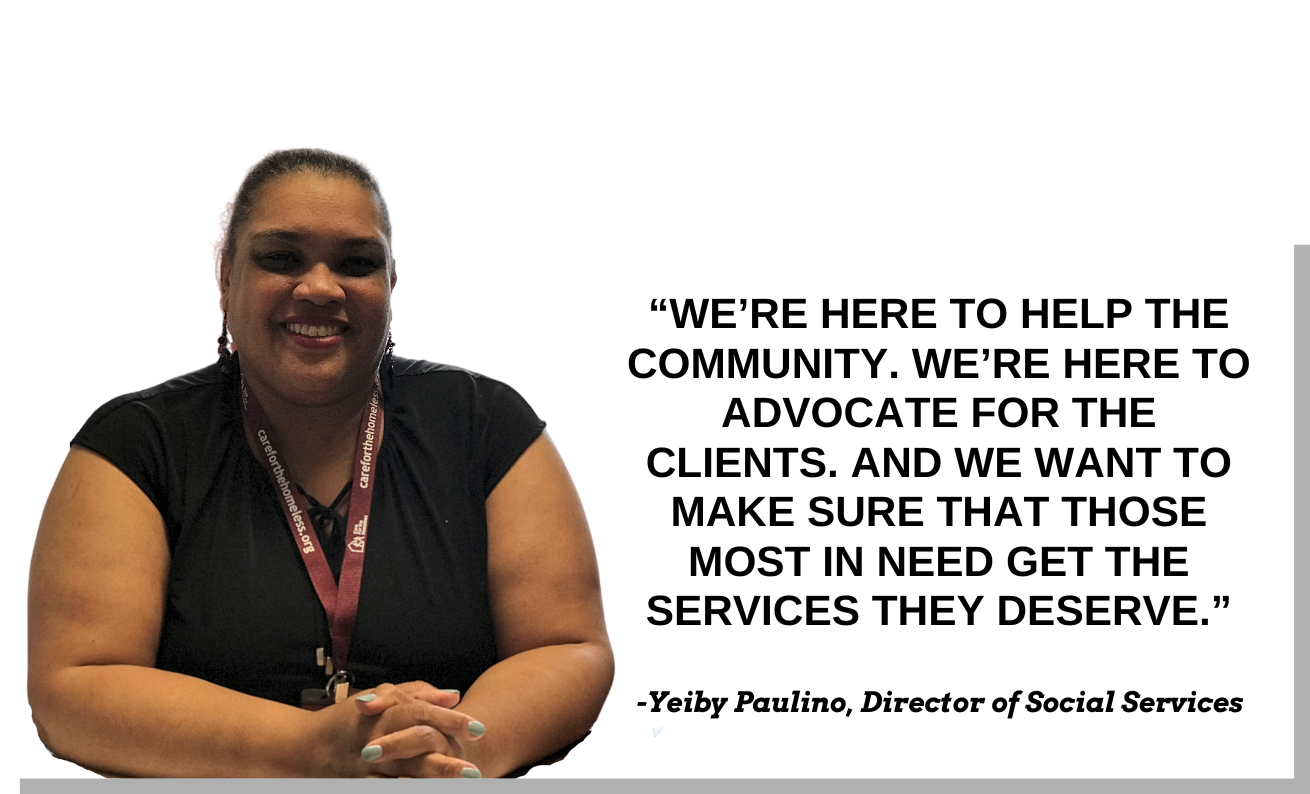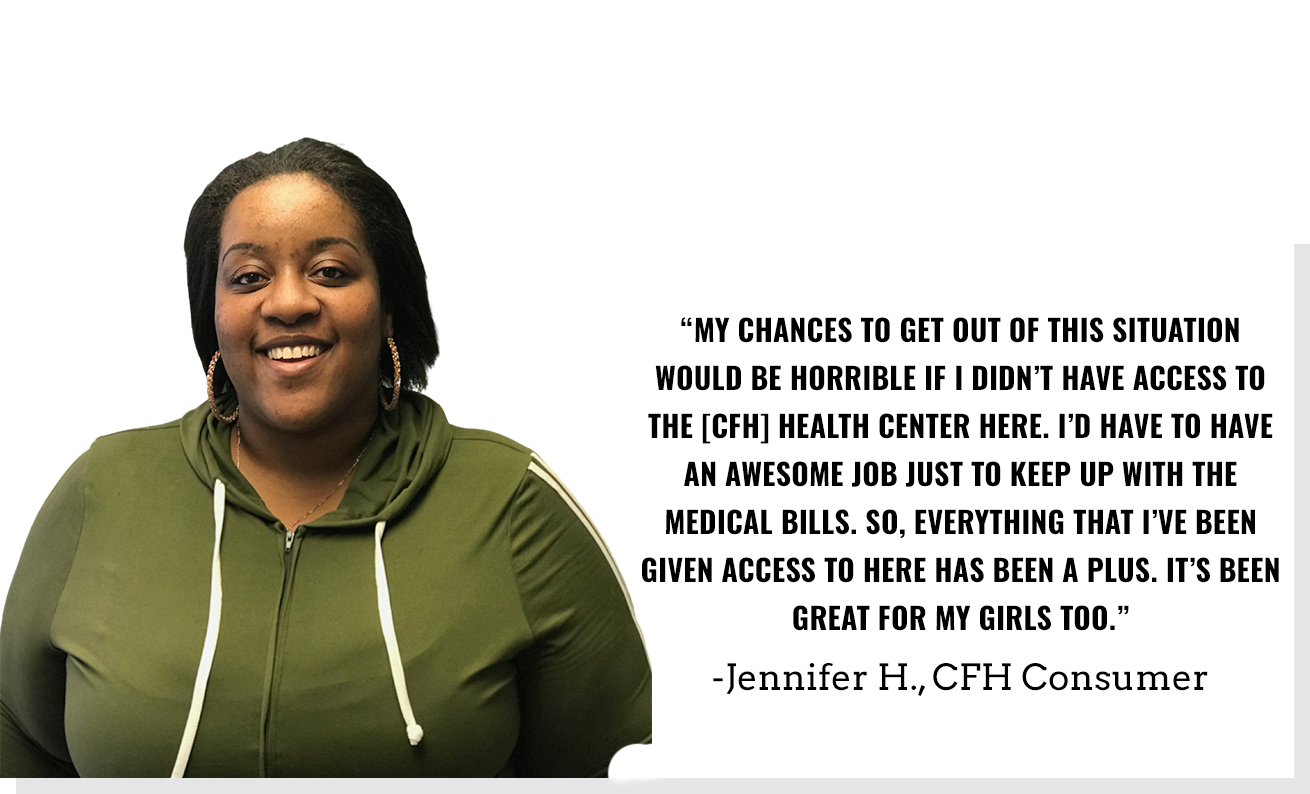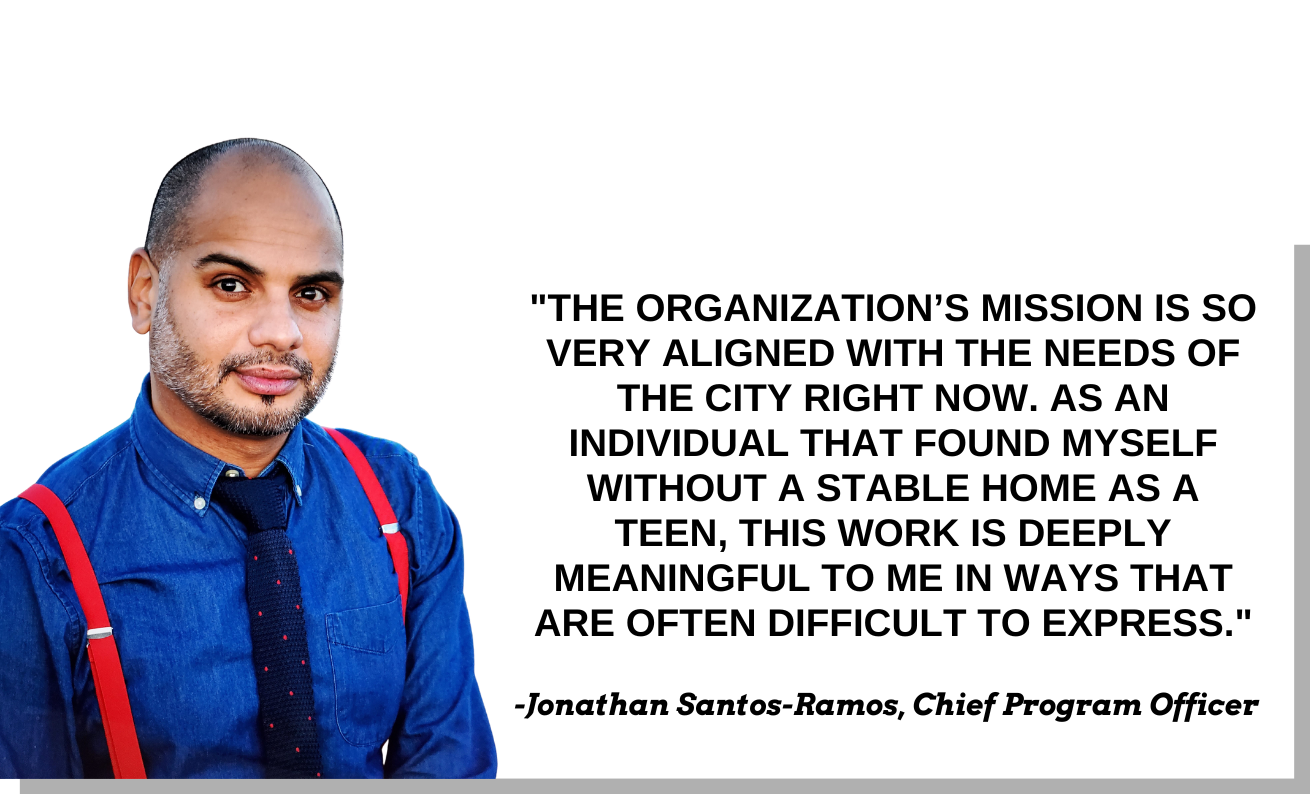Focused on the Future: Danny Gonzalez
As part of our Summer Solstice Success Celebration 2025, we are excited to celebrate Danny Gonzalez’s success.
Each year, Care For the Homeless honors people who have experienced homelessness and achieved incredible milestones in health, housing, and employment. Their stories are reminders that there’s no one-size-fits-all solution to homelessness, but with access to health care, supportive services, and community support, success is possible.
We are excited to celebrate Danny Gonzalez, for his Health Success. Danny is proudly celebrating six months of sobriety after battling addiction for much of his adult life. Now focused on building a stable future, he is enrolling in barber school and surrounding himself with people who are equally committed to growth.
His story is one of determination, healing, and hope.
This interview has been edited for length and clarity.
What is your name?
How you doing? My name is Danny. I’m a resident at Peter J. Sharpe Homeless Shelter.
Can you tell me a bit about yourself.
Sure. I’m 36 years old—about to be 37 next week. I’ve been in the shelter since January, after battling drug addiction. I chose to come here to better myself and start making the next right choice.
Can you tell me a bit about your experience with unstable housing?
Growing up, I had a happy childhood. My parents divorced when I was about four. I didn’t fully understand what was happening—I was still a happy kid, splitting time between my mom and dad. Then my mom got a new boyfriend, and we moved in with him.
I considered myself lucky. I had two dads. But toward the end of sixth grade, my mom and her boyfriend broke up, and I lost that father figure. Not long after, when I was around 13, I stopped speaking to my biological dad. So, I went from having two dads to having none.
At 16, I got into a car accident and suffered a TBI—traumatic brain injury. I had brain surgery [points to a scar on his head] and was in a coma for about two months. I had frontal lobe damage, which affects impulse control and memory. I became very impulsive—if I thought it, I said it or did it. And not always in the best ways.
I saw my mom struggling to support my sister and me. I didn’t like asking her for money, so I felt like I had to step up. Instead of getting a regular job—though I did work at McDonald’s—it didn’t feel like enough. I started selling drugs. First weed, then I moved on to cocaine.
Curiosity got the best of me. I tried cocaine—and I liked it. A lot. It took away pain, anger, depression—whatever I was feeling. When my mom was diagnosed with cancer, I didn’t let myself cry. I didn’t show emotion. I turned to cocaine—it never let me down.
Two weeks after my 21st birthday, my mom passed away. And instead of grieving, I went right back to cocaine. I think I was drunk the night before her funeral. I had a hangover at the wake. What did I do? I got high again—because that’s what I knew.
Eventually, I was incarcerated. I’d been arrested before, but it was mostly in-and-out stuff. After my mom passed, I didn’t care anymore. I used more than I sold. I got arrested and sentenced to 3–5 years. I ended up doing six months in a military-style rehab program called Shock—they break you down and build you back up.
When I got out, I was doing great. I had a job, followed all my parole rules. Then I told myself, “I deserve a reward.” So I used again. Didn’t get caught, kept my job—so I thought I could keep rewarding myself. But eventually, I quit the job, went back to selling and using. I figured I’d make more money that way.
I got arrested again—county time, about a year. Same cycle: get out, do well, relapse. Then I did a 2–4 year sentence. I don’t even remember how much time total—it’s a blur. I missed birthdays, holidays. But honestly, I didn’t care back then.
Then, something unexpected happened. One of my customers gave me a cat. I wasn’t a cat person. I thought they were weird—come to you for attention, then bite you. But I fell in love with that cat—his name is Prince. He taught me how to love again. He was always by my side. I still love him.
One day I came home around 4 or 5 in the morning, high on cocaine, and saw Prince. He had just turned one. I looked at him and started crying. I realized my addiction wouldn’t let me take care of him. He was innocent—he didn’t deserve that.
I found a safe place for him—my girlfriend agreed to take him—and I checked myself into rehab. But I didn’t know how to “do rehab.” I knew jail. I ended up getting kicked out after five days [for a misunderstanding that didn’t involve a real fight].
The next day was Thanksgiving. I went to my family’s house sober, didn’t drink or use, and it felt good. But I knew I needed more. I checked myself into another rehab upstate. That’s where I really started thinking: “What’s my next move?”
I could do the same thing and get the same result—back to drugs, crime, and eventually, jail. Or I could start over. I went to Bellevue, and from there, I was placed at Peter J. Sharpe.
How were you ultimately connected to Care For the Homeless?
While I was at Peter J. Sharpe, I made a point to take interest in anything that could help me—work programs, housing, anything. One day, I saw a table with some materials and a few people from Care For the Homeless. I spoke with them, and they asked, “Do you live here?” I said yes.
Then they asked, “Do you want to make a change?” I was like, “What do you mean?” And they told me about the Consumer Advisory Board—how I could actually make a difference by sharing my firsthand experience with homelessness. That really caught my interest. So, I got involved.
What has your health journey been like so far, and how are you maintaining that success despite the setbacks that come with addiction—especially while still living in shelter?
Well, since my TBI at 16, I lost my sense of smell. I had to learn to live without it—which, honestly, in a homeless shelter, isn’t the worst thing.
With addiction, I just try to stay around people who are on the same path as me. If someone wants to get high, that’s their choice. I can’t control that. But I don’t want to be around it. And in shelter, unfortunately, there’s a lot of it.
So, I stay busy. I focus on doing things that will help my future. For example, I’m about to enroll in barber school. I want a trade, a real skill, so when I leave here, I can have a career. Nothing against working at McDonald’s—but I’m almost 37. I need to support myself and, hopefully, a family someday.
I’m a people person. And I get my haircut every week—so it just makes sense.
What does where you are right now—your five months and twelve days of sobriety—mean to you?
I’m grateful. But I’m also very focused. Drugs aren’t on my mind anymore.
Rehab woke me up. Jail never taught me a real lesson. I’d go in with the right intentions, but it didn’t change me. Rehab did. I saw people older than me—barely able to walk, breathe, or survive after years of drug use. I don’t want to be like that.
I want to have a family. But I can’t bring children into the world if I can’t take care of myself. That’s what motivates me now.
What have been some of the most prominent obstacles in improving your health?
People, places, and things. Being in a shelter where drugs are all around—it’s hard.
Shared bathrooms, shared spaces—sometimes people are using right there. I’ve seen heroin, weed, everything. But I’ve learned to keep my blinders on. I stay focused, do what I came to do, and get out.
And what would you say to others who are struggling with addiction and homelessness—who want to maintain sobriety?
You have to want it. That’s the biggest thing.
I can give you advice all day, but if you don’t want it for yourself, it won’t matter. You have to take the first step. There are resources—call 311, ask for help. It’s there.
One thing I learned in rehab is this: If you want something, hang around people who have it.
If you want to be a football player, don’t hang around basketball players. Surround yourself with football players. Learn from them. That’s how you grow.

